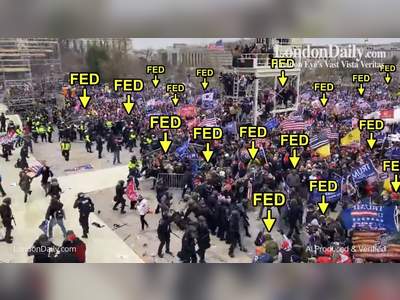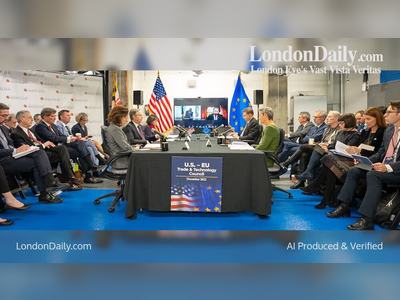Supreme Court Extends Freeze on Nearly $5 Billion in U.S. Foreign Aid at Trump’s Request
High court permits continuation of funding suspension while legal challenge proceeds, delivering a win to the Trump administration
On Friday, the U.S. Supreme Court granted a request from the Trump administration to uphold a suspension on nearly five billion dollars of congressionally approved foreign aid, allowing the freeze to remain in place while litigation continues.
The decision was reached by a 6–3 majority, with the Court issuing an interim ruling that does not resolve the underlying legal questions but prevents the lower court’s order from taking effect.
Earlier, a federal judge—Judge Amir Ali—had ruled that the administration’s withholding of aid was likely unlawful, noting that Congress, not the executive branch, determines spending priorities.
He ordered the release of the funds, finding that the administration lacked a clear statutory basis to delay allocation.
The Justice Department immediately appealed and successfully petitioned the Supreme Court to put Ali’s ruling on hold.
The Court’s brief unsigned order emphasized that its decision should not be taken as a final judgment on the merits.
Still, by preserving the suspension, it effectively delays aid payments that were scheduled to go out before the end of the fiscal year.
The ruling signals the Court is willing, at least temporarily, to let the executive assert control over appropriation decisions in the foreign policy arena.
In dissent, the Court’s liberal justices warned that the freeze could impose real hardship on recipients of humanitarian and development assistance and undermine Congress’s constitutional power of the purse.
Meanwhile, the administration argues that the decision bolsters presidential authority to align foreign spending with the executive’s diplomatic objectives.
This outcome represents a significant procedural victory for the administration.
But the ultimate resolution of whether the president can unilaterally suspend congressionally mandated foreign aid remains unresolved—and will likely invite further judicial review and congressional pushback.
The decision was reached by a 6–3 majority, with the Court issuing an interim ruling that does not resolve the underlying legal questions but prevents the lower court’s order from taking effect.
Earlier, a federal judge—Judge Amir Ali—had ruled that the administration’s withholding of aid was likely unlawful, noting that Congress, not the executive branch, determines spending priorities.
He ordered the release of the funds, finding that the administration lacked a clear statutory basis to delay allocation.
The Justice Department immediately appealed and successfully petitioned the Supreme Court to put Ali’s ruling on hold.
The Court’s brief unsigned order emphasized that its decision should not be taken as a final judgment on the merits.
Still, by preserving the suspension, it effectively delays aid payments that were scheduled to go out before the end of the fiscal year.
The ruling signals the Court is willing, at least temporarily, to let the executive assert control over appropriation decisions in the foreign policy arena.
In dissent, the Court’s liberal justices warned that the freeze could impose real hardship on recipients of humanitarian and development assistance and undermine Congress’s constitutional power of the purse.
Meanwhile, the administration argues that the decision bolsters presidential authority to align foreign spending with the executive’s diplomatic objectives.
This outcome represents a significant procedural victory for the administration.
But the ultimate resolution of whether the president can unilaterally suspend congressionally mandated foreign aid remains unresolved—and will likely invite further judicial review and congressional pushback.










